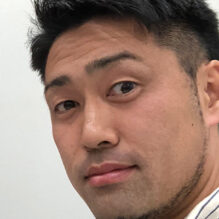-
About
- Kyoto Prize
-
Research Grants
-
News
This website uses cookies to improve the user experience. If you continue on this website, you will provide your consent to our use of cookies.
About
Research Grants
News

Graduate School of Medicine, Kyoto UniversityAssistant Professor*Profile is at the time of the award.
2018Inamori Research GrantsBiology & Life sciences
This prestigious grant has allowed me to pursue my research into Alzheimer’s disease. Going forward, I will work on the mechanism of how the nerve circuit breaks down in patients and then on the development of therapy. I will certainly work diligently each day to produce research findings that are of use for society.
Biology & Life sciences
